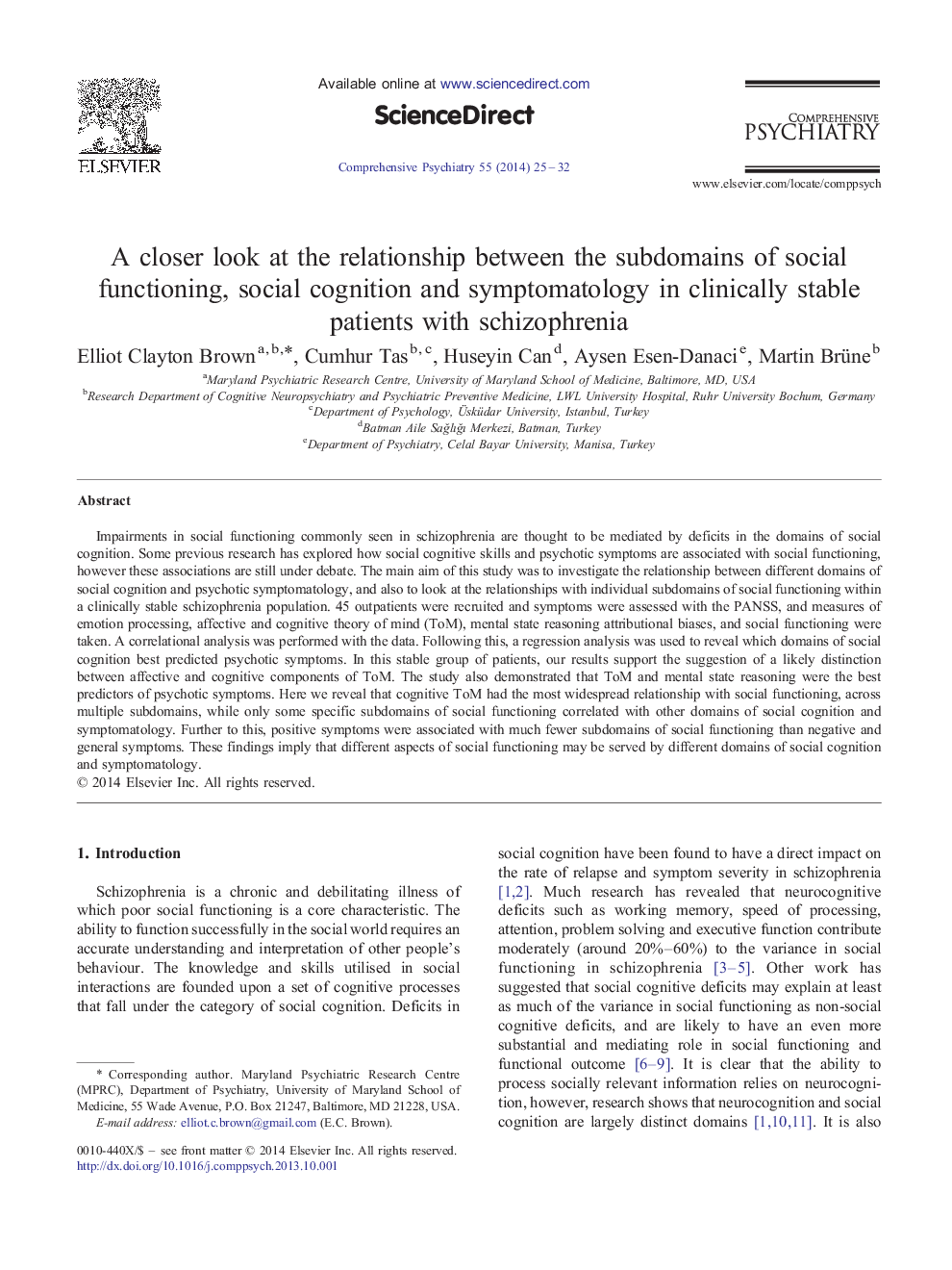| Article ID | Journal | Published Year | Pages | File Type |
|---|---|---|---|---|
| 317571 | Comprehensive Psychiatry | 2014 | 8 Pages |
Impairments in social functioning commonly seen in schizophrenia are thought to be mediated by deficits in the domains of social cognition. Some previous research has explored how social cognitive skills and psychotic symptoms are associated with social functioning, however these associations are still under debate. The main aim of this study was to investigate the relationship between different domains of social cognition and psychotic symptomatology, and also to look at the relationships with individual subdomains of social functioning within a clinically stable schizophrenia population. 45 outpatients were recruited and symptoms were assessed with the PANSS, and measures of emotion processing, affective and cognitive theory of mind (ToM), mental state reasoning attributional biases, and social functioning were taken. A correlational analysis was performed with the data. Following this, a regression analysis was used to reveal which domains of social cognition best predicted psychotic symptoms. In this stable group of patients, our results support the suggestion of a likely distinction between affective and cognitive components of ToM. The study also demonstrated that ToM and mental state reasoning were the best predictors of psychotic symptoms. Here we reveal that cognitive ToM had the most widespread relationship with social functioning, across multiple subdomains, while only some specific subdomains of social functioning correlated with other domains of social cognition and symptomatology. Further to this, positive symptoms were associated with much fewer subdomains of social functioning than negative and general symptoms. These findings imply that different aspects of social functioning may be served by different domains of social cognition and symptomatology.
